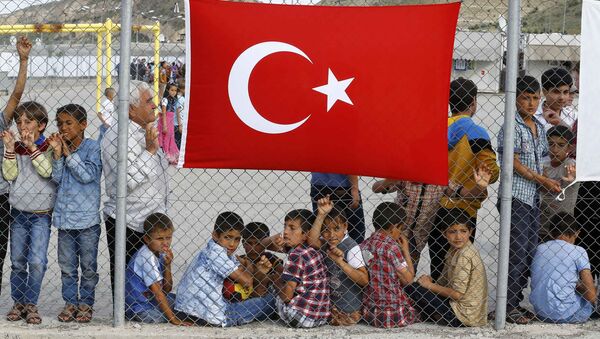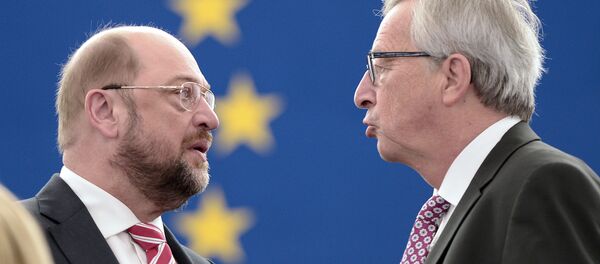The latest row concerns an interview carried out by DW TV host Michel Friedman with Turkish Youth and Sports Minister Akif Cagatay Kilic, which included comments about the fallout from July's coup attempt, as well as press freedom and the status of women.
According to DW: "Following the recording a Turkish government spokesperson instructed DW not to air the interview; when Friedman protested, the video was confiscated by ministry staff."
DW has now formally launched legal proceedings against the Turkish government to have the material returned. It is the latest in a series of media rows between the two countries and centers on the importance of media freedom — an issue that is threatening the EU-Turkey migrant deal.
In September, German magazine Der Spiegel printed a front cover showing Turkish President Recep Tayyip Erdogan wearing sunglasses reflecting two minarets as rockets taking off from a mosque and describing him in an article as a "dictator."
'Der Spiegel' special edition: '#Turkey, the country which lost its freedom.Dictator at war w (own) Kurdish cities' pic.twitter.com/z9N8MTrEEm
— Cahida Dêrsim (@cdersim3) 10 September 2016
It follows another row over satirist Jan Bohmermann, who broadcast a poem on ZDF television sitting in front of a portrait of Erdogan, reading out a poem that accused the Turkish president of "repressing minorities, kicking Kurds and slapping Christians while watching child porn," among other things.
Erdogan demanded that Bohmermann be prosecuted, which German Chancellor Angela Merkel has allowed under a little known German law, although, no prosecution has — so far — occurred.
Media Clampdown
The latest media spat is significant in that German Chancellor Angela Merkel played a major role in negotiating the controversial EU-Turkey migrant deal, under which the EU was due to pay Turkey — initially — US$3.95 billion to bolster its refugee camps and accept "irregular" migrants denied asylum in Greece in return — on a one-for-one basis — for Syrian refugees in Turkey being relocated in the EU.
As part of the deal, the EU was supposed to grant Turkish citizens visa-free access to the EU by the end of July and accelerate its accession to becoming a full member of the EU, provided it meets more than 70 criteria relating to human rights and other administrative protocols.
6 months on since the #EUTurkey deal: "People cannot survive another six months of this misery" https://t.co/TBH4wLvvBq #Greece #refugees
— Sacha Myers (@sacha_myers) 22 September 2016
However, the deal has run into trouble as Turkey had to meet 72 criteria to speed up its accession into the EU, most notably on anti-terror powers, as well as freedom of expression and the media.
Erdogan is refusing to change anti-terror laws that he has used against journalists and media companies. Moreover, he has recently passed a law lifting immunity for lawmakers, in a move critics say will lead to the victimization of opposition politicians.
Since the attempted coup, however, Erdogan's suppression of those associated with the coup — the judiciary, the military and the police — has been the cause of deep divisions within the EU over Turkish membership, putting the migrant deal in peril, which could in turn lead to thousands more migrants flooding into Europe each day.



